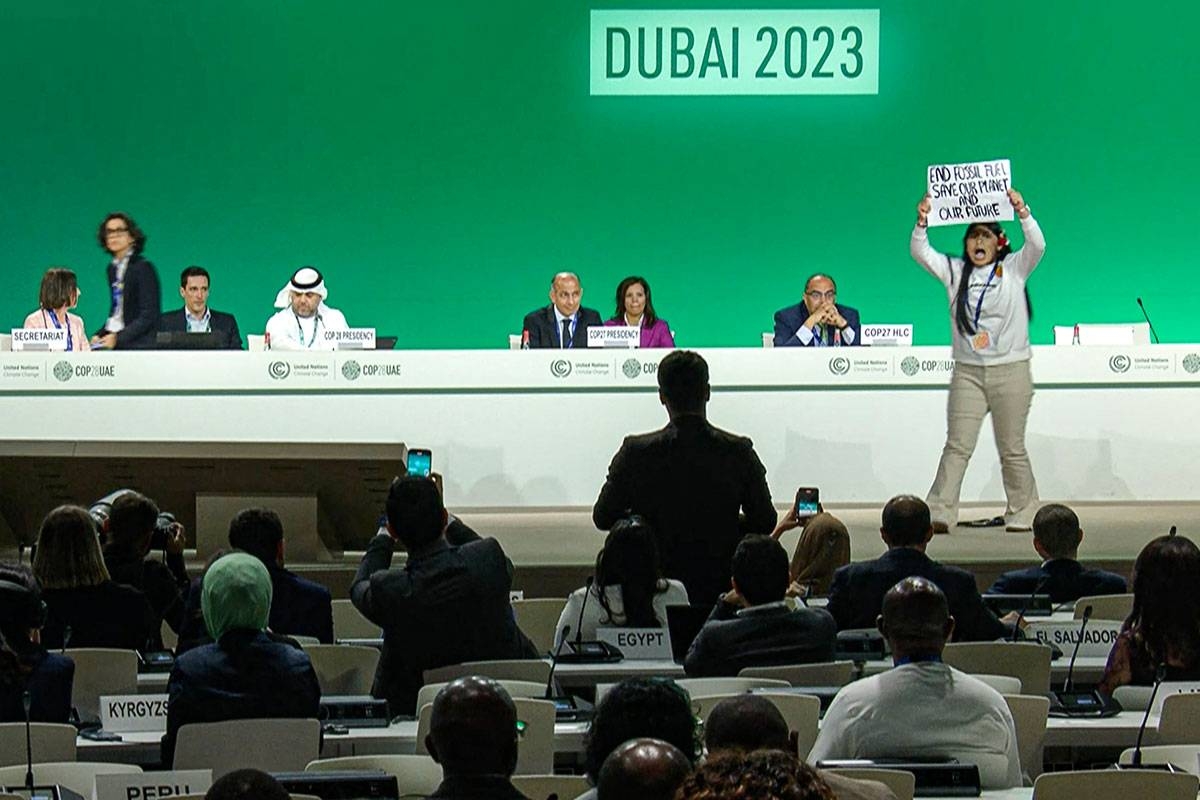The world’s climate negotiators on Tuesday found themselves engaged in intense discussions that went beyond the imposed deadline for a deal. As at-risk nations expressed their frustration over a proposed compromise that fell short of phasing out fossil fuels, the Emirati president of the COP28 summit urged the nearly 200 nations to reach an ambitious agreement by the official end of talks.
However, despite the efforts to force decisions, it became evident that the negotiations were far from completion. Negotiators awaited a fresh text after facing widespread criticism of a draft released on Monday. Recognizing the need for more time, German Foreign Minister Annalena Baerbock reassured, “We have time, and we are prepared to stay a little longer.”
The team from the Marshall Islands, which faces the threat of submersion due to rising sea levels, vowed to stay until the end. John Silk, the Pacific archipelago’s negotiator, emphasized that his country “did not come here to sign our death warrant.”
Cassie Flynn, the global director of climate change at the UN Development Program, remained optimistic, stating that it was still possible to reach a deal that goes beyond the draft’s “watery” language on fossil fuels. She highlighted the continuous efforts of negotiators who were working tirelessly to find common ground.
The COP28 summit, set in a glitzy metropolis built on petrodollars, was anticipated to take the historic step of calling for a global phase-out of fossil fuels. These fuels account for three-quarters of greenhouse gas emissions, which are blamed for the planetary crisis. However, climate decisions must be made by consensus, and Saudi Arabia, the world’s largest oil exporter, has led opposition to any threat to its financial lifeblood.
The draft proposed by COP28 President Sultan Al Jaber, who is also the head of the UAE’s national oil company, presented a series of options, including reductions in fossil fuel production and consumption. This draft was deemed weak by Clive Hamilton, a professor at Australia’s Charles Sturt University and a veteran watcher of climate negotiations. Hamilton pointed out the influence of the fossil fuel lobby, which had a significant presence at COP28.
Scientists have already observed a 1.2 degrees Celsius (2.2 Fahrenheit) rise in global temperatures from pre-industrial times. The year 2023, marked by lethal disasters such as wildfires worldwide, is believed to have been the warmest in 100,000 years. The 2015 Paris summit aimed to limit warming to 1.5 degrees Celsius, a goal reiterated in the latest draft. However, critics argue that achieving this target would be virtually impossible without substantial efforts to curb the use of oil, gas, and coal.
Despite the challenges, US climate envoy John Kerry, who played a key role in negotiating the Paris accord, emphasized the gravity of the situation. He stated, “I don’t think anybody here wants to be associated with the failure to live up to this responsibility. Not a lot of people in public life are asked to make life and death choices historically. This is a war for survival.”
Kerry, despite the United States being the world’s largest oil producer, has supported calls to phase out fossil fuels. It’s worth noting that a significant portion of the rival Republican Party opposes action on climate change.
As negotiations continue, revisions to the draft are expected. Former US vice president Al Gore, a Nobel Peace Prize laureate for his climate advocacy, expressed disappointment with the draft, stating that it appeared to have been written by the OPEC oil cartel. He stressed the need for clear language on phasing out fossil fuels in the final text to prevent COP28 from being remembered as a failure.







